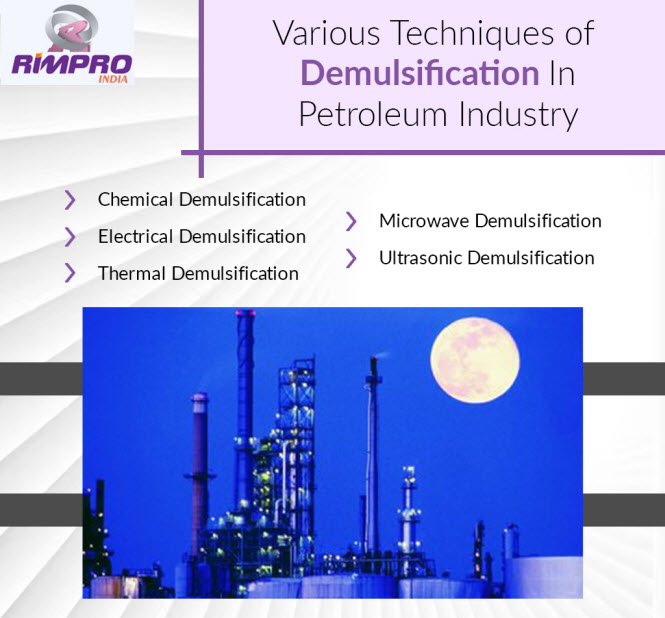 Menu
Menu
The Crucial Role of Demulsification in the Oil and Gas Industry for Maximizing Efficiency and Performance
In the oil and gas industry, the process of demulsification plays a crucial role in ensuring efficient production and separation of oil and water emulsions. Demulsification refers to the breaking of emulsions, where oil and water are mixed together in a stable form.
Demulsification is the process of separating water and oil emulsions into their individual components. Emulsions occur when water and oil mix due to various factors such as reservoir conditions, drilling fluids, or production processes. These emulsions can be challenging to handle as they can lead to reduced production rates, increased equipment corrosion, and operational inefficiencies.
The Significance of Demulsification in the Oil and Gas Industry
Increased Oil and Gas Production
Efficient demulsification techniques result in improved oil and gas production rates. By breaking emulsions, the separation process becomes more effective, allowing for higher yields of valuable hydrocarbons. This increased production translates into higher revenues for oil and gas companies.
Enhanced Efficiency of Separation Equipment
Demulsification helps in improving the efficiency of separation equipment such as separators and desalters. When emulsions are properly broken, this equipment can function optimally, reducing downtime and maintenance costs. Additionally, the improved efficiency of separation equipment leads to better quality oil and gas products.
Prevention of Corrosion and Fouling
Emulsions can contribute to the corrosion and fouling of pipelines, vessels, and other production equipment. By effectively demulsifying these emulsions, the risk of corrosion and fouling is minimized, extending the lifespan of equipment and reducing the need for frequent maintenance.
Cost Reduction and Environmental Benefits
Demulsification plays a significant role in cost reduction within the oil and gas industry. Efficient separation processes decrease the amount of waste generated, resulting in lower disposal costs. Moreover, by reducing the environmental impact of oil and gas production, demulsification helps companies adhere to environmental regulations and promotes sustainable practices.

Importance of Proper Demulsification
Proper demulsification is essential for the smooth operation of the oil and gas industry. Here are some key reasons why it is crucial:
Increased Oil and Gas Production: Effective demulsification techniques result in higher production rates. When emulsions are broken down, oil and gas can be extracted more efficiently, maximizing the output from reservoirs and wells.
Improved Quality of Products: Demulsification ensures the production of high-quality oil and gas products. By removing water and contaminants from the mixture, the end result is cleaner, purer hydrocarbons that meet industry standards and customer requirements.
Extended Equipment Lifespan: Emulsions can cause equipment corrosion and fouling, leading to costly repairs and replacements. Proper demulsification minimizes these risks, prolonging the lifespan of production equipment and reducing maintenance expenses.
Optimized Separation Processes: Demulsification enhances the performance of separation equipment, such as separators and desalters. When emulsions are effectively broken, these devices can function at their optimal capacity, ensuring efficient separation and preventing clogging or blockages.
Cost Reduction and Environmental Benefits: Efficient demulsification results in cost savings for oil and gas companies. By reducing the amount of waste generated and improving process efficiency, demulsification lowers operational expenses and promotes environmental sustainability.
Demulsification is of utmost importance in the oil and gas industry. It enables increased production rates, enhances the efficiency of separation equipment, prevents corrosion and fouling, reduces costs, and promotes environmental sustainability. Overcoming challenges in demulsification is crucial for ensuring optimal performance and maximizing the benefits of oil and gas operations.
